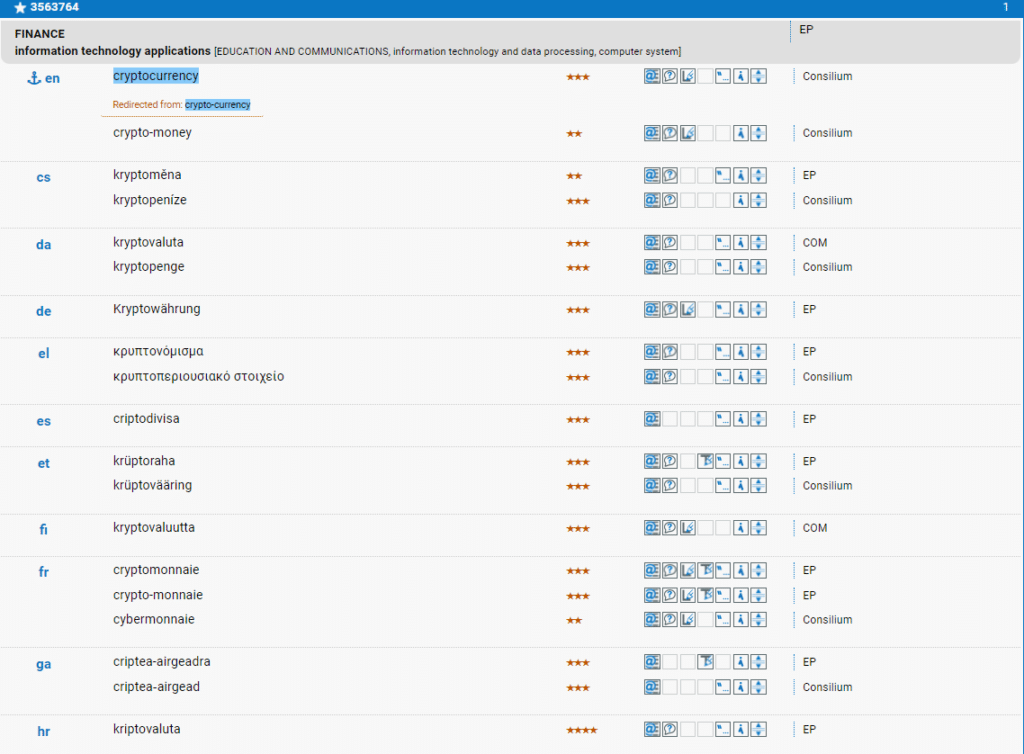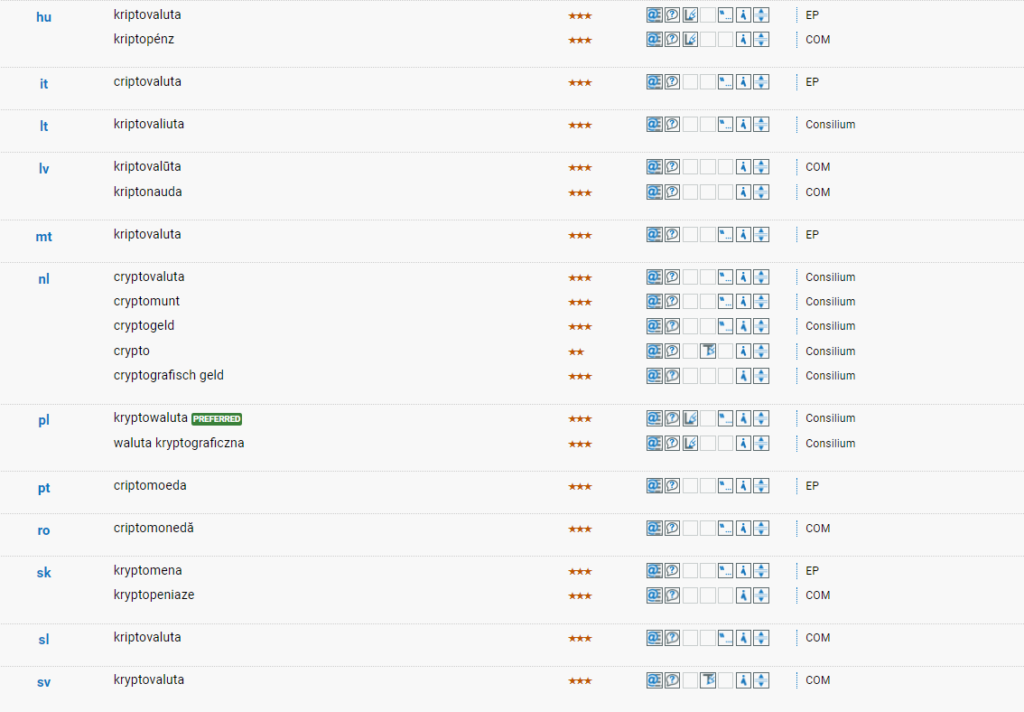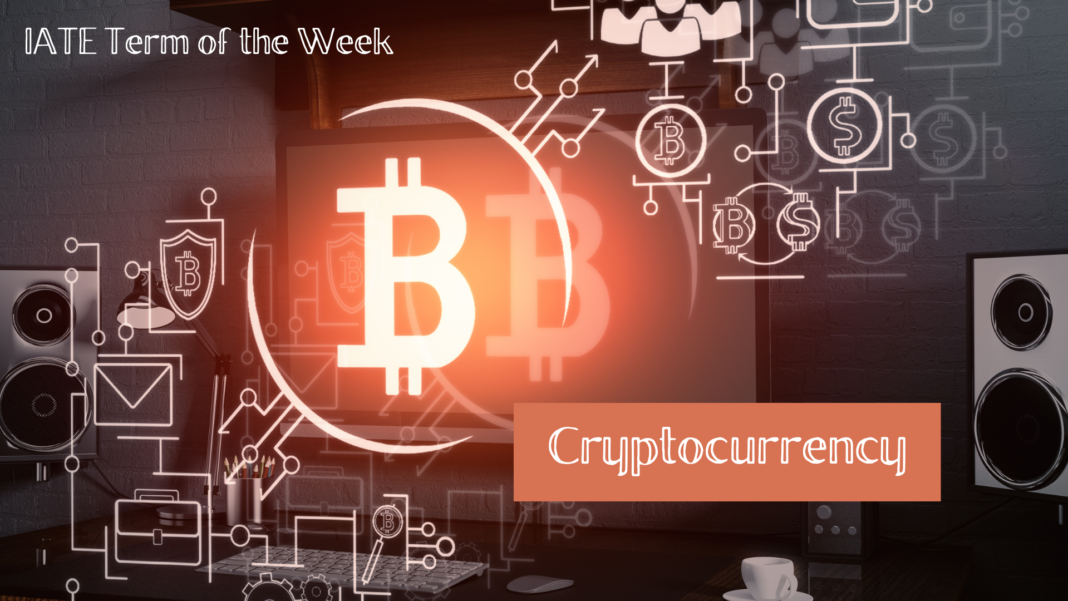Cryptocurrencies are a trending topic lately and an important matter especially for the European Union, as the usage of crypto-assets seems to be equally complex and auspicious for consumers and organizations.


What is a Cryptocurrency?
You might have already heard about Bitcoin, Ethereum, Ripple, Tether and Litecoin, which are the some of the most famous types of cryptocurrencies. Cryptocurrency is an alternative form of traditional payment and a virtual currency, which functions as a currency and as a virtual account system at the same time. Cryptocurrencies are not administered by any authority such as governments, banks or financial institutions. In order to be able to use cryptocurrencies, you will need to have a cryptocurrency wallet (software or cloud-based services). This wallet can be easily stored and accessed through your mobile device or computer.
The procedure of creating new cryptocurrencies is called mining. Any individual user is able to create them by solving demanding mathematical equations. Each cryptocurrency like Bitcoin for instance is created with an encrypted code. In order to be able to unlock it, you will need the equation that works like a digital key, in order to crack the code.
One of the main reasons that made cryptocurrencies quite popular is that while transactions are being recorded, the personal information trading cryptocurrencies are not revealed, so any user can remain anonymous.
Cryptocurrency Dangers & the EU Regulations
The EU adopts various regulations in order to foster innovation and mitigate the dangers with the goal to protect users and enable safe transactions. Understanding the meaning and importance of crypto-assets is therefore crucial. Crypto-assets are digital assets that can be used for investments. Since crypto-assets are currently not involved in the EU regulations, different risks might appear, such as:
1. Dangers for the companies, markets or consumers:
It is rather common that people who tend to use crypto-assets are mostly unaware of the risks. In addition, they are not covered by the EU consumer protection rules. As a consequence, incidents of financial crime, cyberattacks, money loss and financial instability have been noticed.
2. Environmental Impact:
Since the usage of technology requires extensive electricity usage, this automatically results into high environmental footprint.
The EU Crypto Regulation Plan
The EU crypto regulation plan aims to enhance the potentials of cryptocurrency and reduce the risks that might arise from their usage. The new rules, proposed on March 2022 focus on tackling financial fraud and money laundering and support innovation, investors and consumers. In fact, MEPs have proposed that all these rules should be supervised by the European Securities and Markets Authority and the European Banking Authority in order to increase transparency.
When it comes to the environmental footprint of the cryptocurrencies, MEPs in cooperation with the Commission have prepared new rules to contribute to more sustainable friendly cryptocurrency activities.
Cryptocurrencies are here to stay. It is therefore of great importance to be aware of the pros and cons of their usage, in order to avoid financial and environmental consequences.
References:
Times Money Mentor. 2022. What is cryptocurrency and how does it work? – Times Money Mentor. [ONLINE] Available at: https://www.thetimes.co.uk/money-mentor/article/what-is-cryptocurrency/. [Accessed 20 April 2022].
Cryptocurrency dangers and the benefits of EU legislation | News | European Parliament. 2022. Cryptocurrency dangers and the benefits of EU legislation | News | European Parliament. [ONLINE] Available at: https://www.europarl.europa.eu/news/en/headlines/economy/20220324STO26154/cryptocurrency-dangers-and-the-benefits-of-eu-legislation. [Accessed 20 April 2022].
The Basics about Cryptocurrency | CTS. 2022. The Basics about Cryptocurrency | CTS. [ONLINE] Available at: https://www.oswego.edu/cts/basics-about-cryptocurrency. [Accessed 20 April 2022].

Written by Ioanna Mavridou
Ioanna holds a Bachelor’s degree in Translation from the Ionian University in Corfu and has also studied her Master’s in Communication at Gothenburg University in Sweden. A digital communications enthusiast, she has completed a professional Social Media & Digital Marketing certification. She speaks Greek, English, Swedish, German and Russian. She is a Communications Trainee at the Terminology Coordination Unit of the European Parliament.

